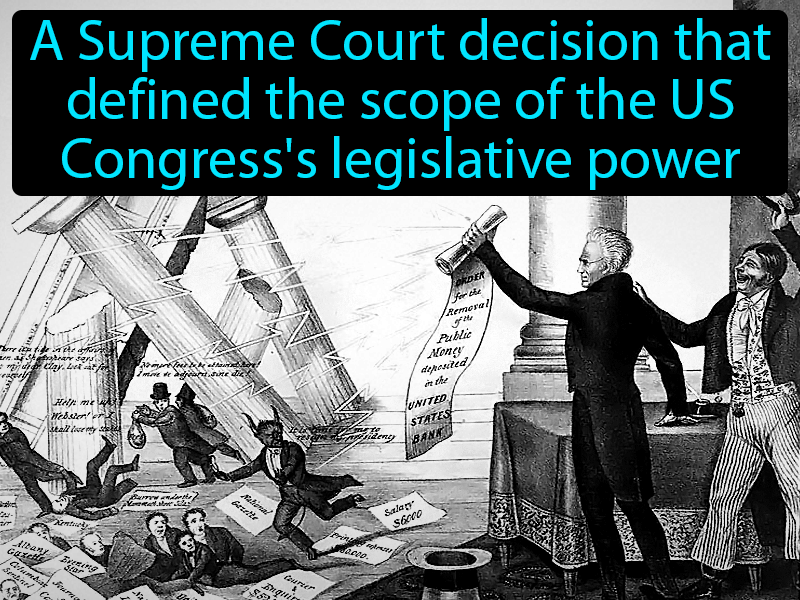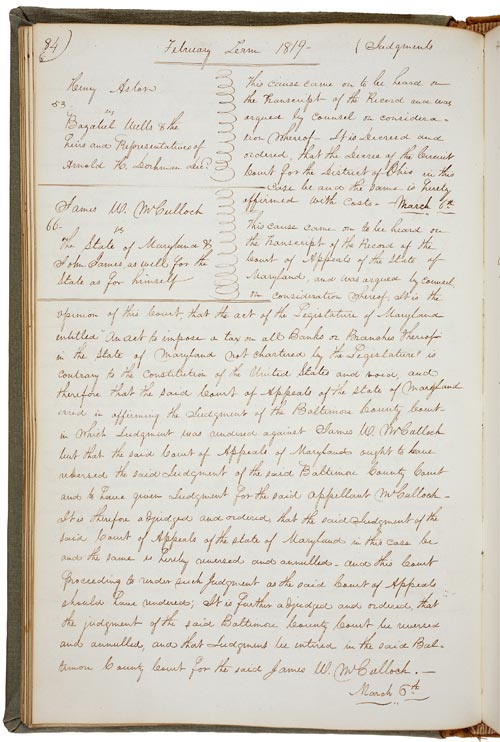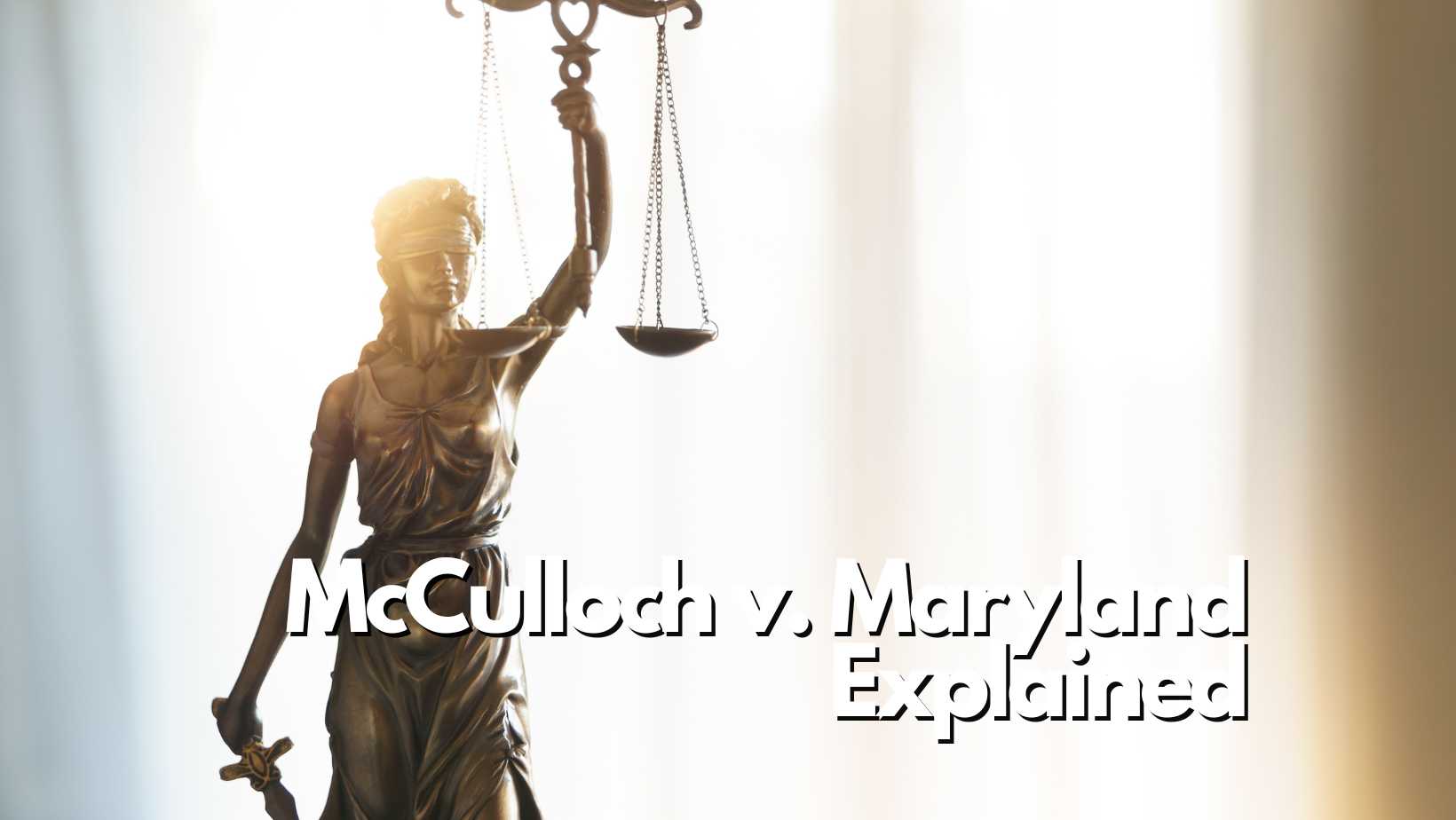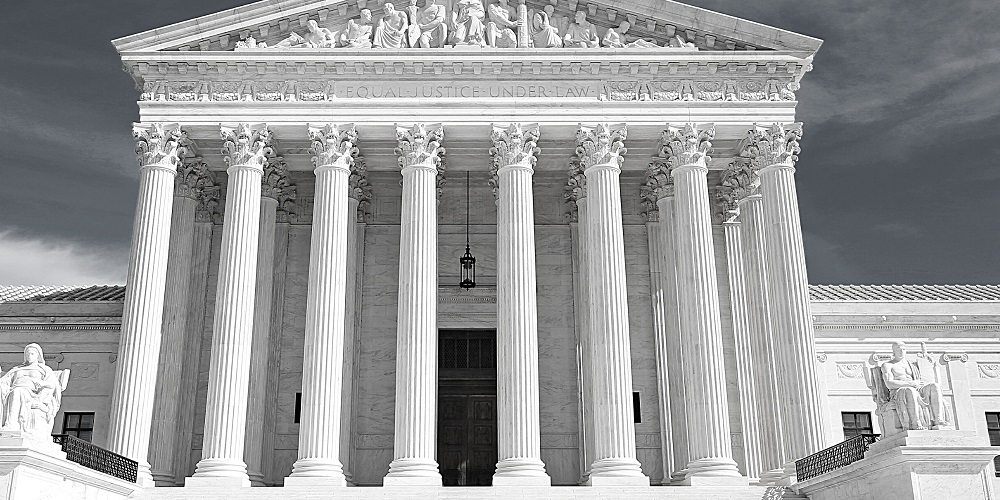The Supreme Court Case Mcculloch V Maryland Ensured That - States cannot interfere with the federal government when it uses its implied powers under the necessary and proper. Mcculloch, the cashier of the baltimore branch of the bank, refused to pay the tax. The state appeals court held that the second bank. Maryland (1819) the supreme court upheld the power of the national government and denied the right of a state to tax the federal. Supreme court case decided in 1819, in which the court affirmed the constitutional doctrine of congress’ ‘implied.
Mcculloch, the cashier of the baltimore branch of the bank, refused to pay the tax. States cannot interfere with the federal government when it uses its implied powers under the necessary and proper. The state appeals court held that the second bank. Maryland (1819) the supreme court upheld the power of the national government and denied the right of a state to tax the federal. Supreme court case decided in 1819, in which the court affirmed the constitutional doctrine of congress’ ‘implied.
Mcculloch, the cashier of the baltimore branch of the bank, refused to pay the tax. States cannot interfere with the federal government when it uses its implied powers under the necessary and proper. The state appeals court held that the second bank. Supreme court case decided in 1819, in which the court affirmed the constitutional doctrine of congress’ ‘implied. Maryland (1819) the supreme court upheld the power of the national government and denied the right of a state to tax the federal.
McCulloch V Maryland Definition & Image GameSmartz
The state appeals court held that the second bank. States cannot interfere with the federal government when it uses its implied powers under the necessary and proper. Maryland (1819) the supreme court upheld the power of the national government and denied the right of a state to tax the federal. Mcculloch, the cashier of the baltimore branch of the bank,.
What did the Supreme Court case McCulloch v. Maryland ensure?
States cannot interfere with the federal government when it uses its implied powers under the necessary and proper. Maryland (1819) the supreme court upheld the power of the national government and denied the right of a state to tax the federal. Mcculloch, the cashier of the baltimore branch of the bank, refused to pay the tax. The state appeals court.
McCulloch v. Maryland Landmark Cases of the US Supreme Court
Supreme court case decided in 1819, in which the court affirmed the constitutional doctrine of congress’ ‘implied. Maryland (1819) the supreme court upheld the power of the national government and denied the right of a state to tax the federal. The state appeals court held that the second bank. Mcculloch, the cashier of the baltimore branch of the bank, refused.
19. What was the effect of the Supreme Court case McCulloch v. Maryland
States cannot interfere with the federal government when it uses its implied powers under the necessary and proper. Maryland (1819) the supreme court upheld the power of the national government and denied the right of a state to tax the federal. Supreme court case decided in 1819, in which the court affirmed the constitutional doctrine of congress’ ‘implied. Mcculloch, the.
McCulloch v. Maryland Landmark Supreme Court Cases Teaching American
The state appeals court held that the second bank. Mcculloch, the cashier of the baltimore branch of the bank, refused to pay the tax. States cannot interfere with the federal government when it uses its implied powers under the necessary and proper. Maryland (1819) the supreme court upheld the power of the national government and denied the right of a.
McCulloch v. Maryland (1819) National Archives
Mcculloch, the cashier of the baltimore branch of the bank, refused to pay the tax. Supreme court case decided in 1819, in which the court affirmed the constitutional doctrine of congress’ ‘implied. The state appeals court held that the second bank. States cannot interfere with the federal government when it uses its implied powers under the necessary and proper. Maryland.
Solved The Supreme Court case McCulloch v. Maryland
Supreme court case decided in 1819, in which the court affirmed the constitutional doctrine of congress’ ‘implied. The state appeals court held that the second bank. States cannot interfere with the federal government when it uses its implied powers under the necessary and proper. Maryland (1819) the supreme court upheld the power of the national government and denied the right.
McCulloch v. Maryland Supreme Court Decision Analysis and Impact
Mcculloch, the cashier of the baltimore branch of the bank, refused to pay the tax. Supreme court case decided in 1819, in which the court affirmed the constitutional doctrine of congress’ ‘implied. Maryland (1819) the supreme court upheld the power of the national government and denied the right of a state to tax the federal. The state appeals court held.
Required Supreme Court Case McCulloch v. Maryland (1819) Marco Learning
Supreme court case decided in 1819, in which the court affirmed the constitutional doctrine of congress’ ‘implied. The state appeals court held that the second bank. States cannot interfere with the federal government when it uses its implied powers under the necessary and proper. Maryland (1819) the supreme court upheld the power of the national government and denied the right.
What is one result of the Supreme Court's decision in the McCulloch v
States cannot interfere with the federal government when it uses its implied powers under the necessary and proper. Mcculloch, the cashier of the baltimore branch of the bank, refused to pay the tax. The state appeals court held that the second bank. Maryland (1819) the supreme court upheld the power of the national government and denied the right of a.
Maryland (1819) The Supreme Court Upheld The Power Of The National Government And Denied The Right Of A State To Tax The Federal.
States cannot interfere with the federal government when it uses its implied powers under the necessary and proper. Supreme court case decided in 1819, in which the court affirmed the constitutional doctrine of congress’ ‘implied. Mcculloch, the cashier of the baltimore branch of the bank, refused to pay the tax. The state appeals court held that the second bank.









